The Great M9.2 Alaska Earthquake and Tsunami of March 27, 1964
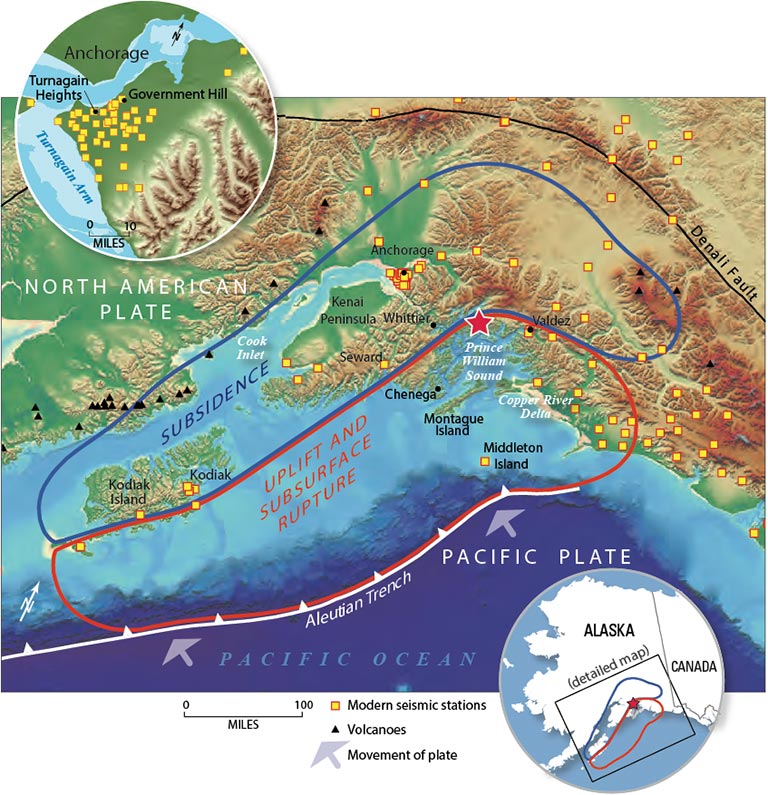
On March 27, 1964 at 5:36pm local time (March 28 at 3:36 UTC) a great earthquake of magnitude 9.2 occurred in the Prince William Sound region of Alaska. The earthquake rupture started approximately 25 km beneath the surface, with its epicenter about 6 miles (10 km) east of the mouth of College Fiord, 56 miles (90 km) west of Valdez and 75 miles (120 km) east of Anchorage. The earthquake lasted approximately 4.5 minutes and is the most powerful recorded earthquake in U.S. history. It is also the second largest earthquake ever recorded, next to the M9.5 earthquake in Chile in 1960.
The map shows the epicenter of the 1964 Great Alaska Earthquake (red star), caused when the Pacific Plate lurched northward underneath the North American Plate.
Scientific Background
Science Features: The 1964 Great Alaska Earthquake & Tsunami
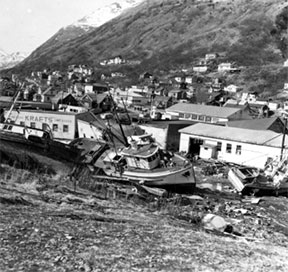 It was the largest U.S. earthquake ever recorded, and a turning point in earth science. Learn about the great leaps in research over the past 50 years.
It was the largest U.S. earthquake ever recorded, and a turning point in earth science. Learn about the great leaps in research over the past 50 years.Largest Earthquake in Alaska
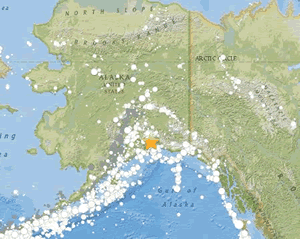 Abridged from Seismicity of the United States, 1568-1989 (Revised), by Carl W. Stover and Jerry L. Coffman, U.S. Geological Survey Professional Paper 1527, United States Government Printing Office, Washington: 1993.
Abridged from Seismicity of the United States, 1568-1989 (Revised), by Carl W. Stover and Jerry L. Coffman, U.S. Geological Survey Professional Paper 1527, United States Government Printing Office, Washington: 1993.The 1964 Great Alaska Earthquake and Tsunamis—A Modern Perspective and Enduring Legacies
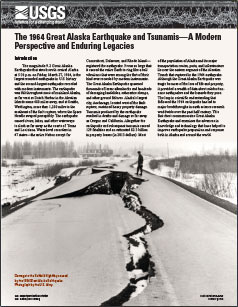 This USGS Fact Sheet by Thomas M. Brocher, et al. commemorates the Great Alaska Earthquake and examines the advances in knowledge and technology that have helped improve earthquake preparation and response in Alaska and around the world.
This USGS Fact Sheet by Thomas M. Brocher, et al. commemorates the Great Alaska Earthquake and examines the advances in knowledge and technology that have helped improve earthquake preparation and response in Alaska and around the world.Event Page
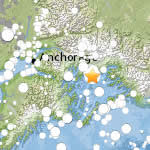 Tetonic summary, data, and maps.
Tetonic summary, data, and maps.ShakeMap
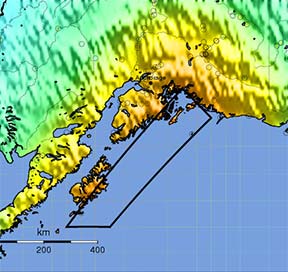 Map showing ground motion and shaking intensity based on instrumental measurements of shaking along with information about local geology and the earthquake’s location and magnitude.
Map showing ground motion and shaking intensity based on instrumental measurements of shaking along with information about local geology and the earthquake’s location and magnitude.Seismograms
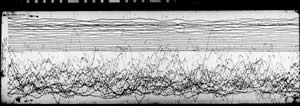 Photos of historic helicorder records.
Photos of historic helicorder records.The Great Alaska Earthquake of 1964
 Summary of the earthquake’s cause and effects from the Alaska Earthquake Information Center.
Summary of the earthquake’s cause and effects from the Alaska Earthquake Information Center.
Videos
Magnitude 9.2: The 1964 Great Alaska Earthquake
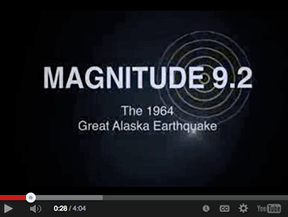 Short video (4 min) by Stephen Wessells, USGS relating how the largest quake in U.S. history had profound and lasting impacts on our lives. The video features USGS geologist George Plafker who, in the 1960’s, correctly interpreted the quake as a subduction zone event. This was a great leap forward in resolving key mechanisms of the developing theory of plate tectonics.An expanded version (11 min) is also available: 1964 Quake: The Great Alaska Earthquake (en Español).
Short video (4 min) by Stephen Wessells, USGS relating how the largest quake in U.S. history had profound and lasting impacts on our lives. The video features USGS geologist George Plafker who, in the 1960’s, correctly interpreted the quake as a subduction zone event. This was a great leap forward in resolving key mechanisms of the developing theory of plate tectonics.An expanded version (11 min) is also available: 1964 Quake: The Great Alaska Earthquake (en Español).USGS Monthly Evening Lecture Series
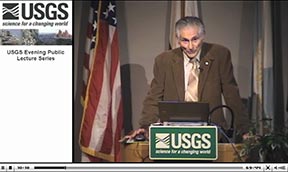 “The 1964 Great Alaska Earthquake and Tsunami” lecture by George Plafker, USGS Geologist Emeritus.
“The 1964 Great Alaska Earthquake and Tsunami” lecture by George Plafker, USGS Geologist Emeritus.The 1964 Great Alaska Earthquake—What Happened and Why
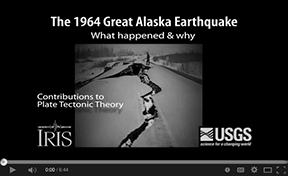 IRIS video directed by Robert F. Butler explaining the science behind the earthquake. Animations explain the magnitude (Just how big is 9.2?), rupture processes, elastic rebound, and resulting tsunami.
IRIS video directed by Robert F. Butler explaining the science behind the earthquake. Animations explain the magnitude (Just how big is 9.2?), rupture processes, elastic rebound, and resulting tsunami.Tsunamis Generated by Megathrust Earthquakes
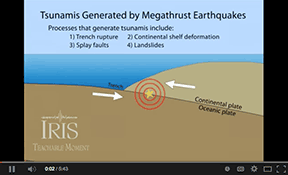 An animation about tsunami-generating megathrust earthquakes using examples from Japan (2011), Chile (2010), and Alaska (1964) to describe structures that generate deadly tsunamis including: megathrust plate-boundary displacement, deformation of the overriding plate by splay faulting and/or folding, and earthquake-generated landslides.
An animation about tsunami-generating megathrust earthquakes using examples from Japan (2011), Chile (2010), and Alaska (1964) to describe structures that generate deadly tsunamis including: megathrust plate-boundary displacement, deformation of the overriding plate by splay faulting and/or folding, and earthquake-generated landslides.Tectonics & Earthquakes of Alaska—More than just plate boundaries
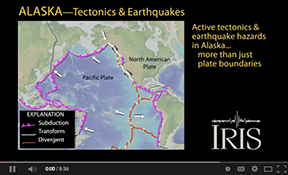 An animation that describes earthquakes along the Aleutian subduction zone, one of the most seismically active in the world, and the Queen Charlotte Transform Fault. Explains how Yakutat terrane accretion drives mountain building and crustal fault earthquakes like the 2002 M7.9 Denali Earthquake.
An animation that describes earthquakes along the Aleutian subduction zone, one of the most seismically active in the world, and the Queen Charlotte Transform Fault. Explains how Yakutat terrane accretion drives mountain building and crustal fault earthquakes like the 2002 M7.9 Denali Earthquake.
Historic Photos and Videos
1964 Great Alaska Earthquake Photo Tour of Anchorage
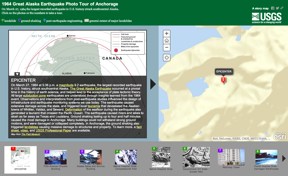 This “Story map” combines an interactive map with historic photos of the earthquake.
This “Story map” combines an interactive map with historic photos of the earthquake.Damage Photos
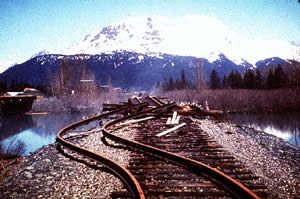 Historic photos of damage.
Historic photos of damage.Though the Earth be Moved
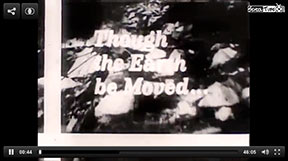 A documentary chronicling the first 72 hours after the 1964 Alaska Earthquake and the response to the disaster by the United States Office of Civil Defense, U.S. Military, and local, state, and federal officials. Includes extensive archival footage of the earthquake and aftermath.
A documentary chronicling the first 72 hours after the 1964 Alaska Earthquake and the response to the disaster by the United States Office of Civil Defense, U.S. Military, and local, state, and federal officials. Includes extensive archival footage of the earthquake and aftermath.Clips of the Great Alaska Earthquake from The Alaska Film Archives
 These films were shot by amateur and professional cameramen in the hours and days following the earthquake at locations such as Anchorage, Kodiak, Seward, Valdez, Chenega, Afognak.
These films were shot by amateur and professional cameramen in the hours and days following the earthquake at locations such as Anchorage, Kodiak, Seward, Valdez, Chenega, Afognak.The Alaskan Earthquake 1964
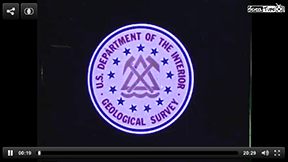 An examination of the 1964 Alaska Good Friday Earthquake from a (pre- plate tectonics theory) geological point of view. Produced by Creative Arts Studio in 1964 for the USGS.
An examination of the 1964 Alaska Good Friday Earthquake from a (pre- plate tectonics theory) geological point of view. Produced by Creative Arts Studio in 1964 for the USGS.Alaskan Earthquake Video (1966)
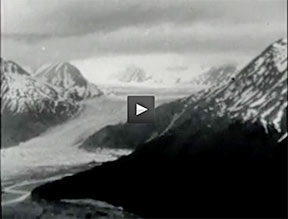 Excerpt from the TV show “The Big Picture” produced by the US Army in 1966 about the Alaska Earthquake and its tragic effects.
Excerpt from the TV show “The Big Picture” produced by the US Army in 1966 about the Alaska Earthquake and its tragic effects.
News and Media
Alaska Science Forum: Feet on the Ground Right After Alaska’s Big One
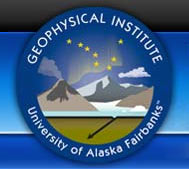 Ned Rozell’s personal account of his meeting with George Plafker, one of three USGS Geologists who responded to the Great Alaska quake a few days after event. Plafker spent most of the summer in Alaska researching and documenting the earthquake.
Ned Rozell’s personal account of his meeting with George Plafker, one of three USGS Geologists who responded to the Great Alaska quake a few days after event. Plafker spent most of the summer in Alaska researching and documenting the earthquake.Why the 1964 Great Alaska Earthquake Matters 50 Years Later
 The 1964 earthquake was a defining moment in a territory that had just achieved statehood. Fifty years later, it continues to shape Alaska, its people, and the science of earthquakes. This opinion piece by USGS geologist Peter Haeussler, et al. briefly recounts the events of March 27, 1964 and explains the scientific and societal importance of the earthquake.
The 1964 earthquake was a defining moment in a territory that had just achieved statehood. Fifty years later, it continues to shape Alaska, its people, and the science of earthquakes. This opinion piece by USGS geologist Peter Haeussler, et al. briefly recounts the events of March 27, 1964 and explains the scientific and societal importance of the earthquake.
Historic USGS Publications
Alaska’s Good Friday Earthquake, a preliminary geologic evaluation
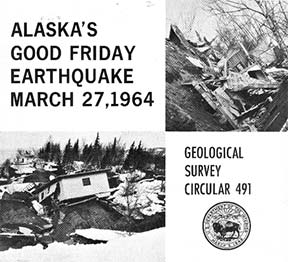 USGS circular published one month after the earthquake by Arthur Grantz, George Plafker, and Reuben Kachadoorian detailing their scientific investigations of the quake.
USGS circular published one month after the earthquake by Arthur Grantz, George Plafker, and Reuben Kachadoorian detailing their scientific investigations of the quake.Maps Showing Seismic Landslide Hazards in Anchorage, Alaska
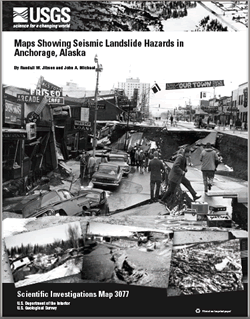 Seismically triggered landslides are one of the greatest geologic hazards in Anchorage. These maps, by Randall W. Jibson and John A. Michael, depict seismic landslide hazards in Anchorage and are an important tool for planning, zoning, and emergency-response preparation.
Seismically triggered landslides are one of the greatest geologic hazards in Anchorage. These maps, by Randall W. Jibson and John A. Michael, depict seismic landslide hazards in Anchorage and are an important tool for planning, zoning, and emergency-response preparation.
Professional Papers
USGS published the results of investigations of the Alaska earthquake of March 27, 1964 in a series of six Professional Papers.
- Professional Paper 541 is an introduction to the story of a great earthquake—its geologic setting and effects, the field investigations, and the public and private reconstruction efforts.
- Professional Paper 542 describes the effects of the earthquake on Alaskan communities.
- Professional Paper 543 describes the earthquake’s regional effects.
- Professional Paper 544 describes the effects of the earthquake on the hydrologic regimen.
- Professional Paper 545 describes the effects of the earthquake on transportation, communications, and utilities.
- Professional Paper 546 is a summary of what was learned from a great earthquake about the bearing of geologic and hydrologic conditions on its effects, and about the scientific investigations needed to prepare for future earthquakes.
Conferences
2014 Seismological Society of America Annual Meeting
 SSA’s 2014 Annual Meeting will provide a stimulating exchange of research on a wide range of topics with colleagues from all over the world. Oral presentations, poster sessions, exhibits, field trips, business meetings and social gatherings all provide participants the opportunity to meet and share with their peers.April 30–May 2, 2014 in Anchorage, Alaska.
SSA’s 2014 Annual Meeting will provide a stimulating exchange of research on a wide range of topics with colleagues from all over the world. Oral presentations, poster sessions, exhibits, field trips, business meetings and social gatherings all provide participants the opportunity to meet and share with their peers.April 30–May 2, 2014 in Anchorage, Alaska.10NCEE—10th US National Conference on Earthquake Engineering
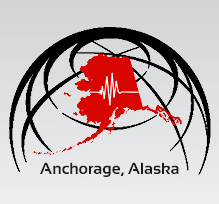 The Tenth U.S. National Conference on Earthquake Engineering will provide an opportunity for researchers and practitioners to share the latest knowledge and techniques to mitigate the damaging effects of earthquakes and tsunamis.July 21–25, 2014 in Anchorage, Alaska.
The Tenth U.S. National Conference on Earthquake Engineering will provide an opportunity for researchers and practitioners to share the latest knowledge and techniques to mitigate the damaging effects of earthquakes and tsunamis.July 21–25, 2014 in Anchorage, Alaska.
See Also
1964 Alaskan Earthquake—Personal Accounts
 Read personal accounts of the earthquake and submit your own story.
Read personal accounts of the earthquake and submit your own story.Alaska Earthquake Archive: In Honor of Dr. George Plafker
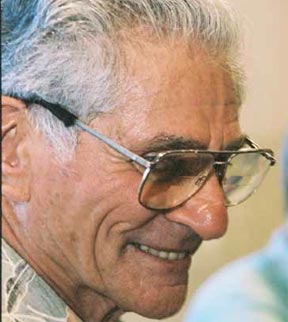 IRIS webpage dedicated to George Plafker, a USGS field geologist noted for his studies of subduction-zone and backarc thrust earthquakes. Through very complete mapping of vertical deformation and faulting and the application of tectonics, he was first to propose in 1965 that the source of the 1964 Great Alaska earthquake was a low-angle thrust fault.
IRIS webpage dedicated to George Plafker, a USGS field geologist noted for his studies of subduction-zone and backarc thrust earthquakes. Through very complete mapping of vertical deformation and faulting and the application of tectonics, he was first to propose in 1965 that the source of the 1964 Great Alaska earthquake was a low-angle thrust fault.50th Anniversary of the 1964 Earthquake
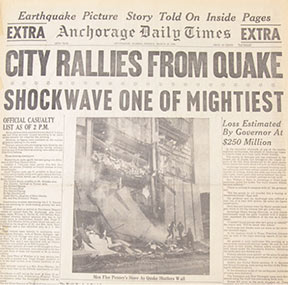 Earthquake history, photos, videos, and more from the Alaska Division of Homeland Security & Emergency Management.
Earthquake history, photos, videos, and more from the Alaska Division of Homeland Security & Emergency Management.Alaska Earthquake Alliance
 The Alaska Earthquake Alliance coordinates earthquake awareness and preparedness activities throughout Alaska. The purpose of the group is to bring together both institutions and individuals who have an interest in reducing earthquake hazards in Alaska.
The Alaska Earthquake Alliance coordinates earthquake awareness and preparedness activities throughout Alaska. The purpose of the group is to bring together both institutions and individuals who have an interest in reducing earthquake hazards in Alaska.

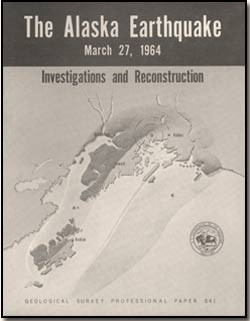
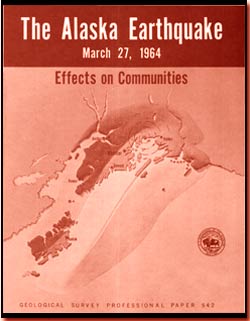
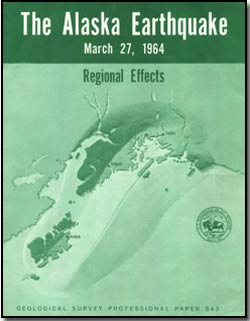
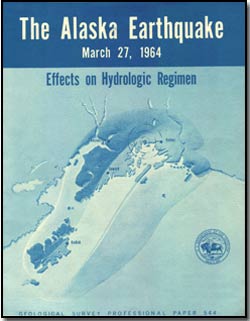
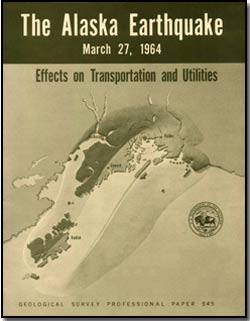
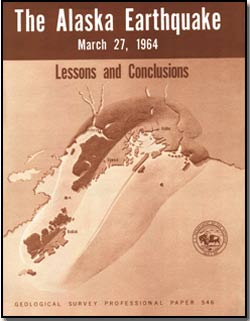

No comments:
Post a Comment
Note: Only a member of this blog may post a comment.